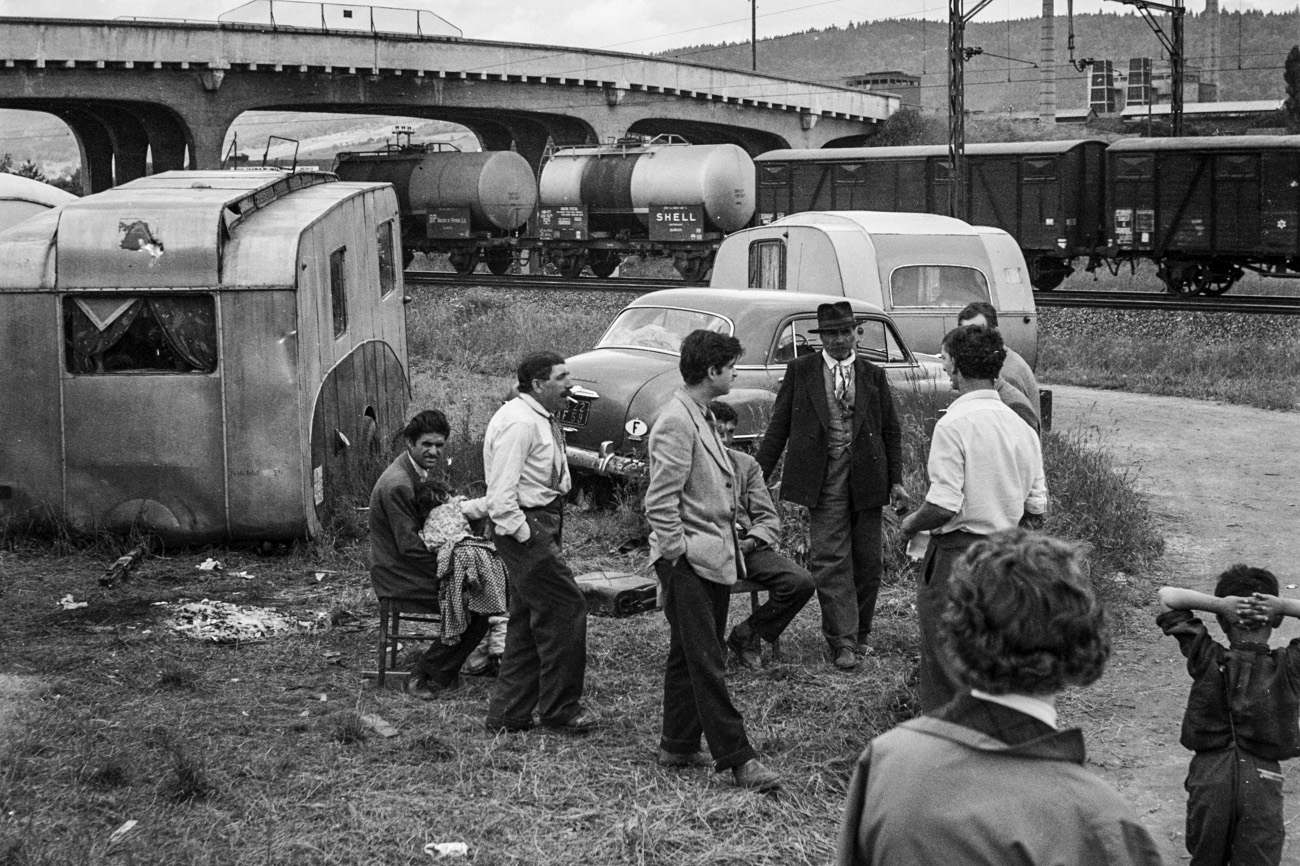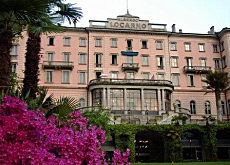
Elderly give hotel new lease of life

Swiss hotels are disappearing in unprecedented numbers, but one has been given a reprieve by offering beds to guests living out their final years.
The hotel near Interlaken has discovered a new, growing market: elderly people in need of care. It could be a solution for some of the other hundreds of hotels expected to slip into extinction over the next few years.
“It’s almost like living in a hotel! I especially like the view,” said Karl Schweingruber, an 83-year-old resident of the Schlössli nursing home.
The owners of the Schlössli decided two years ago to take the unusual step of converting their hotel on the shores of Lake Brienz into a nursing home, and it has been exactly one year since Astrid and Hanspeter Ruprecht-Fuchs welcomed their first elderly residents.
“It’s nice that our guests stay longer than the two or three days they did when it was a hotel, since it allows us to get to know them better. But I was quite surprised when half a dozen of them died in the first few months,” explained Ruprecht.
“I guess it took time before the idea sunk in that the people who come to live here are sick and elderly,” he added.
In fact, nearly a third of the Schlössli (little castle) residents passed away in the first 12 months.
But the owners were able to fill the vacancies quickly. The fledgling home already boasts an occupancy rate of 80 per cent, compared with a 40 per cent average in its previous life.
Malaise
As a hotel it suffered from a malaise affecting Switzerland’s tourism sector. Visitor arrivals have been stagnating since the early Nineties and medium-sized, mid-priced hotels away from the country’s tourist centres have been hardest hit.
Around 1,000 hotels have gone out of business in the past decade and at least 800 of the remaining 5,600 are expected to close within the next ten years.
Many of the former hotels were sold to property speculators who renovated them and re-sold them as senior residences.
But the owners of the Schlössli were not interested in selling out. They wanted to find a solution which kept them in a job, knowing they would not have got much for their establishment.
The hotel last made a profit in the early Nineties and Ruprecht and his wife had to watch the average age of their dwindling and predominantly Swiss guests rise considerably.
Demographics
They decided to go with the demographics. The number of Swiss over 64 doubled between 1950 and 1990, and the +79 crowd quadrupled over the same period. Those in need of care, currently around 125,000, are due to rise by a fifth by 2020.
Ruprecht also believes the market for seniors’ flats, where the elderly take care of themselves, is becoming saturated.
“They are able to live much longer at home thanks to the improvements in home care,” he said.
“Fewer and fewer people are making the move into seniors’ residences nowadays, and the average age of a nursing home entrant is 85.”
Investment
Ruprecht says he and his wife jumped at the opportunity when they discovered not all of the licences for nursing homes in the region had been claimed.
They invested SFr800,000 ($610,000) to meet the higher safety standards of Swiss nursing homes.
It involved upgrading the emergency exits and fire alarm system and installing a lift big enough to hold at least three wheelchairs or a nursing home size bed.
The licence meant the cost of the care, including the nursing staff they had to hire, is covered by social security and health insurance.
Even so, the couple is hedging its bets and is building a residence for the elderly adjoining the hotel. Anyone buying a flat has the right to move into the nursing home when that time comes.
swissinfo, Dale Bechtel in Bönigen
According to the Federal Statistics Office, the number of Swiss residents aged 79 and over is expected to more than double by 2040 to at least 550,000.
This age group now accounts for 4% of the total population (7.4 million).
The office says more than half of the voting population will be over 50 years of age by 2010.
About 1,000 Swiss hotels went out of business over the past decade and Switzerland Tourism, the national tourist office, says at least another 800 of the remaining 5,600 are expected to close over the next ten years.
Various factors have made life difficult for medium-sized hotels, especially family-run establishments: dwindling occupancy rates, greater difficulty securing bank loans to upgrade facilities and hotel owners/directors going into pension and unable to find a successor.
Swiss tourism experts say large hotels, concentrated in Switzerland’s few cities or a select number of alpine resorts, have the best chance of survival.

In compliance with the JTI standards
More: SWI swissinfo.ch certified by the Journalism Trust Initiative




































You can find an overview of ongoing debates with our journalists here . Please join us!
If you want to start a conversation about a topic raised in this article or want to report factual errors, email us at english@swissinfo.ch.